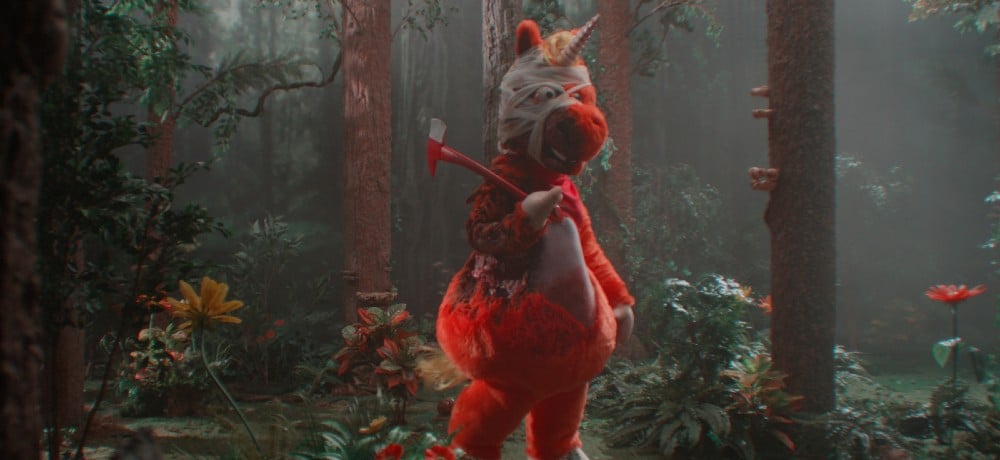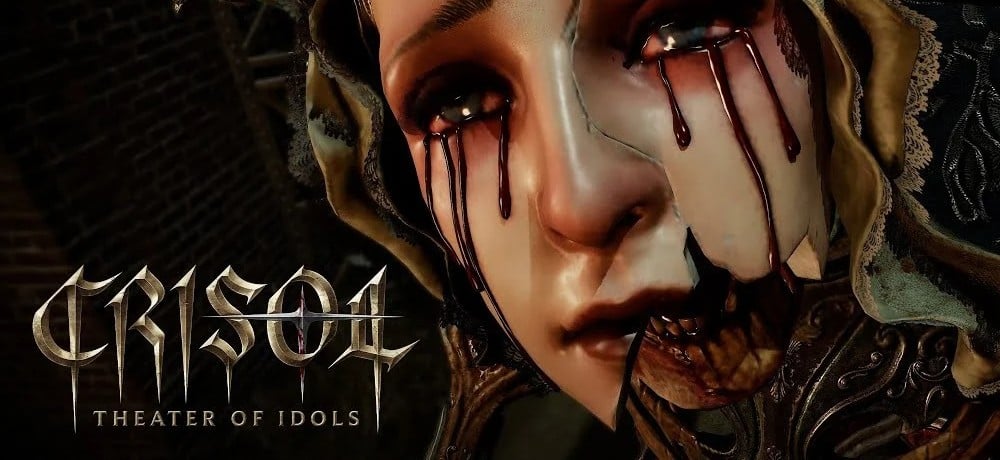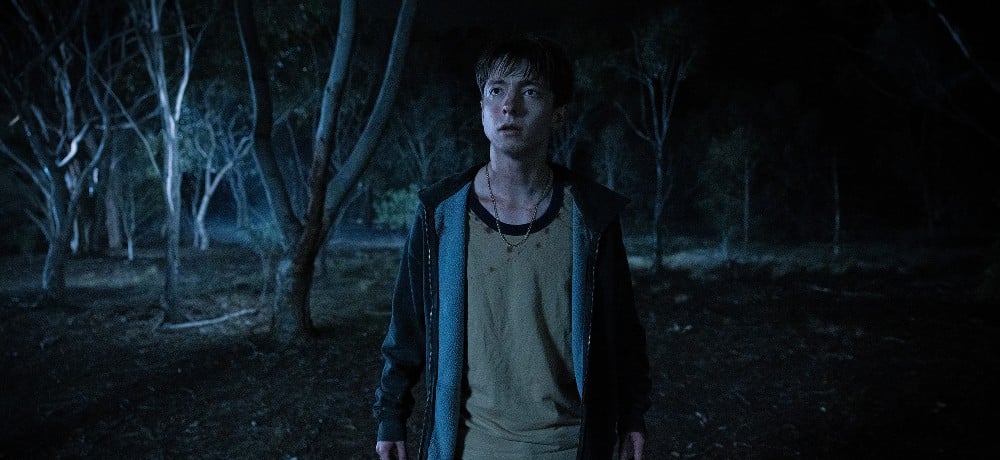





New Line Cinema may be known as the "House That Freddy Built," but there's no doubt that founder Bob Shaye certainly laid the foundation. A prolific producer who has helped hundreds of movies see the light of day, Shaye (who went on to co-found Unique Features with Michael Lynne after parting ways with New Line) returns to the director's chair with Ambition, a new psychological thriller about a violinist who finds herself surrounded by death and obsession in the days leading up to her biggest performance. With Ambition now in theaters and on VOD and digital platforms from Shout! Studios, Daily Dead caught up with Shaye to discuss his return to directing for the first time since 2007's The Last Mimzy, collaborating with his sister Lin (who he calls the "Betty White of horror"), and he also reflected on workin with Wes Craven during the now legendary filming of A Nightmare on Elm Street.
You previously directed Book of Love and The Last Mimzy, but for Ambition, you're going into the horror realm, which you're very familiar with from having worked on so many films. What was it about this story that really made you want to tell it as a director?
Bob Shaye: The thing about Ambition, even though it's sort of dressed in a kind of thriller outfit, it really deals with something that has always interested me. It was really the theme of the very first short film I ever made a long time ago, which was called Image. How do you know what you're seeing is real? There's actually a whole line of philosophy that deals with that question. How do we know when anything is happening? I once saw a commercial where Fred Astaire was dancing with the Dyson vacuum cleaner and I was just astounded just to see that. I thought it was incredibly clever, but it was also a little off-putting. In the first short I made, Image, that's exactly what it's about. How do you know what's real and how do you know what's not real?
That's what attracted me and to cloaking it as a thriller, actually a female millennial thriller, to try to add a little commerciality and "want to see" factor into it. It lent itself to that sort of marketing ploy. I thought that I could make a film that would be satisfying to me and most importantly that would turn viewers on and make them feel like they spent an hour and a half well. Especially from younger females, I find that there's a very strong reaction to the film because it all deals with young females. I'm pleased with what the initial reaction has been and all of those factors together got me to pick this up. Another thing, particularly because I had a day job besides being a director my whole life, I was getting a little bored with my day job and I was really starting to get itchy to have the fun and the challenge and the excitement of directing something that would be entertainment with a little bit of a challenging puzzle built into it.
So, actually somebody asked me about what's next on my agenda. I didn't have an agenda. I can explain to you why I got involved with the Book of Love and why I got involved with Mimzy and my explanation, but I always wanted to be as close to the game as I could. I like to cook as a pastime and I like to cook for other people, particularly. It's more fun to actually do the cooking—at least it was for a long time—than to stand in the kitchen as an owner and say, "Do this, do this. I've been a producer cook for a long time, as you just pointed out. Now I wanted to get back into the kitchen again. I might do it again just for my own satisfaction for the genuine and honest desire to be able to put a good movie in front of everybody at the dinner table.
And my sister, Lin, happens to have a very nice role in Ambition that I was just reflecting on today. I call her the Betty White of horror. She found her niche in horror films, and I'm very proud of her.
What's so interesting about your career is that you've always been involved with so many different facets of moviemaking. I think it's really fun that you still have that passion to go back in there, roll up your sleeves, and be on the front lines and make a movie as a director. And in this one, you blend psychological scares with a very real physical threat as well. I'm really excited for people to finally get to see this.
Bob Shaye: Oh, I appreciate the compliment. I take it as such. It's very hard to make a movie for everybody. We did pretty well with The Lord of the Rings. At an investor meeting when somebody asked me what we are and what we do, I said, "Well, it's kind of hard to explain as an independent film distribution and production company, but I guess the best way to describe what I think my profession is, is being a vendor of diversion." It's being able to walk into a theater and turn off your everyday for an hour or two hours and just get distracted, get challenged, get tickled, get turned on for that period of time. If you can do that, it's an amazing thing.
Obviously I take only producer or even distributional credit for some of these films, but I've been involved with almost 600 movies over the years. It's a challenge to be a producer because you want to get your hands in the middle of it but I've always tried to keep myself a little bit apart from it because it's a little bit like being an editor for a writer. You can't stick your nose in too much. You can just kind of give your creative team a point of view and hopefully co-op them a little bit into trying yours. It's very satisfying.
What I think is so interesting about the Nightmare on Elm Street franchise that you worked on is that each movie in that franchise seems to really have its own personality and identity, and it seems like each of the directors that you picked really give each movie their own personality. You were able to bring in all these really talented, up-and-coming directors.
Bob Shaye: There were some of these slightly off-the-wall decision-making factors that helped it along. But I'm quite happy. Obviously, Wes was the master. It was really kind of his deal. He taught me a little bit about producing.
In the scenes where Freddy Krueger is scraping his nails, his arms grow 10 feet long on each side, and he's scraping his nails against the wall. We didn't have a location. We're shooting. We have only that one night. We're gaining light, it's getting to be morning. It was like three o'clock, four o'clock in the morning. We did not have a location and we didn't know what to do. So I said, "Well, gee, Wes, what do you want? Can we do it in another place?"
But he said, "Bob, I want to tell you something. What are you?" I said, "What do you mean, what am I?" He said, "Aren't you the producer?" I said, "Yes, I'm the producer." He said, "Produce me an alley." So I ran around on my own until I found an alley for him. Then we got the shot.
But that's a learning experience through Wes Craven about how to be a producer. Know your work. Know what you're supposed to do and know what you're not supposed to do. But anyhow, it's been a real great time. As I said to somebody else the other day, I have checked off the table but I haven't left the casino. I'm glad to come back to cinema again, to come up with something that I instinctually hope is going to be satisfying and it's going to turn an audience on.
So when you came back to direct your first film since 2007, was there anything different about making a movie this time around, or was it kind of like riding a bike where you just keep going?
Bob Shaye: Well, it was totally different. It was reasonably low budget, but I had a very good DP, Brian Hubbard, who was the guy who went to RISD, Rhode Island School of Design and Photography. He kind of got it. The thing that I was trying to bring to the screen was I wanted the field to be a little bit Douglas Sirkian. I don't think in any way, shape, or form, in anybody's imagination, that I'm anything like Douglas Sirk or that the film is anything [like that]. But it's just that sort of formal, careful pacing that really appealed to Brian a lot, who I put a lot of confidence in, as I do with all DPs, because I think if I have any skill, it's mostly working with actors as opposed to lighting and stuff like that. I do my job, but he was really responsible for all of that.
It was a challenge, but in a sense, it was an exercise. Again, I could go back to cooking. If you walk into somebody's kitchen and they only have 17 things in the cupboard—a bottle of milk, a package of eggs in the refrigerator—you come up with the tastiest omelet you can make. So I think I came up with a pretty tasty omelet.
I'm excited, too, that Unique Features partnered with Shout! Studios, because they've been really big champions of the horror genre. They've released a lot of great movies from when you were producing a lot at New Line. So, it almost feels full circle that you guys were able to come together for this.
Bob Shaye: Well, I'm very proud and excited. Bob Emmer [Co-Chief Executive Officer & Co-Founder of Shout! Factory], I only met him once before. Seth Willenson, who is one of the fifth or sixth New Liners a long time ago, has actually been a film consultant and he put the deal together. I feel like I'm in good hands. They're grown-ups, they have a great operation, and they are serious about their work. And at the end of the day, I'm very happy with the distribution of the format and platform that they've devised. It's typically special theaters and day and date, so that there's going to be a lot of opportunities to see this film. And I think it's perfectly satisfactory to see it on any platform because it ought to put a smile on your face and a thought at the end that, "I never saw this coming." And if I get those two reactions, that'll be very, very satisfying for me.
Like a lot of our readers, I'm a huge Nightmare on Elm Street fan. I'm just infatuated with that whole franchise, and I read that you helped direct the iconic stairway scene in A Nightmare on Elm Street.
Bob Shaye: Yes, that's correct. That was an insane moment. We had actually started shooting three or four different sequences at the same time. We're on the Desilu stage here. I had one scene that I had actually dreamt about that I put into the script when Wes and I worked on it: the sticky stairs. They figured out how to do it and Wes was busy shooting something else. The clock was ticking, and the film was for all of us, it's like a metaphorical baby being given birth and you;ve got to give it everything you have on it. So, Wes was willing to let Bob Shaye get in the middle of the whole thing and he let me have Nancy walk up the sticky stairs. He also hired Sean Cunningham when he couldn't do something [a chase scene between Freddy and Nancy] to come in and do it.
I love the fact that he brought Sean Cunningham in, because it almost was foreshadowing the whole Friday the 13th/Nightmare on Elm Street crossover that had been in the works for so long.
Bob Shaye: Yeah, well, I actually at the beginning was very much against sequels and stuff like that. I thought it was kind of pandering and I actually didn't sufficiently digest the value of having a theme like the funny papers, where you fall in love with the character and you read them every day. Obviously, with the commercial success of so many sequels, I've sort of changed my way about that, and Nightmare on Elm Street was the first sequel that we'd ever thought about [having] a sequel [for]. And I always said we have to try and do something unique and different.
But I'll tell you one last story about Sean Cunningham. My lawyer at that point who became subsequently my business partner, Michael Lynn, represented Sean also in selling Friday the 13th to Paramount. So, Frank Mancuso Jr., who is head of distribution at Paramount, Michael called him up and said, "I've got another Friday the 13th for you if you want to come and see it." So he said "yes" and he brought a whole marketing team to a screening at 1600 Broadway, which was a big screening room there. We screened the work print for the Paramount team, because I was hoping that we were going to ask for $3 million for the film and the film cost about a million.
So anyhow, we're screening the film, and because it was a work print with a temporary mix, we actually had the editor having to sit in the screening room to do some kind of mix on the control panel in the screening room. He came out after awhile and I said, "How are they reacting? Do they like it?" He says, "Yes, they're reacting, but I just discovered something. We have the wrong ending on the film." So I said, "What do you mean?" He said, "Well, we didn't change the ending. It isn't the ending that you and Wes had agreed on."
So, I said, "Holy shit, what are you going to do?" He said, "Well, the editing room is across the street." So, the film is on the fourth reel running through and I'm standing in the projection booth and I see it running through, and the editor is racing around and comes back with the right ending and throws it on a rewind and is racing down to change all this stuff. And as soon as the fourth reel runs out, he walks in and says, "A brief moment, please," and we're dying like crazy rethreading the projector for the fifth thing.
And we finally finished the thing up and they walk out and say, "Thank you very much." And the next day, the guy who's head of acquisitions calls me up and he said, "We're deciding to pass on the film." And I said, "Well, what happened? I thought this would be perfect for you after Friday the 13th?" He said, "No, we just discovered because of a film called Dreamscape that dreams don't work in movies. So thanks a lot." And every time I saw Frank Mancuso after that, I said, "Thank you for making me a millionaire."